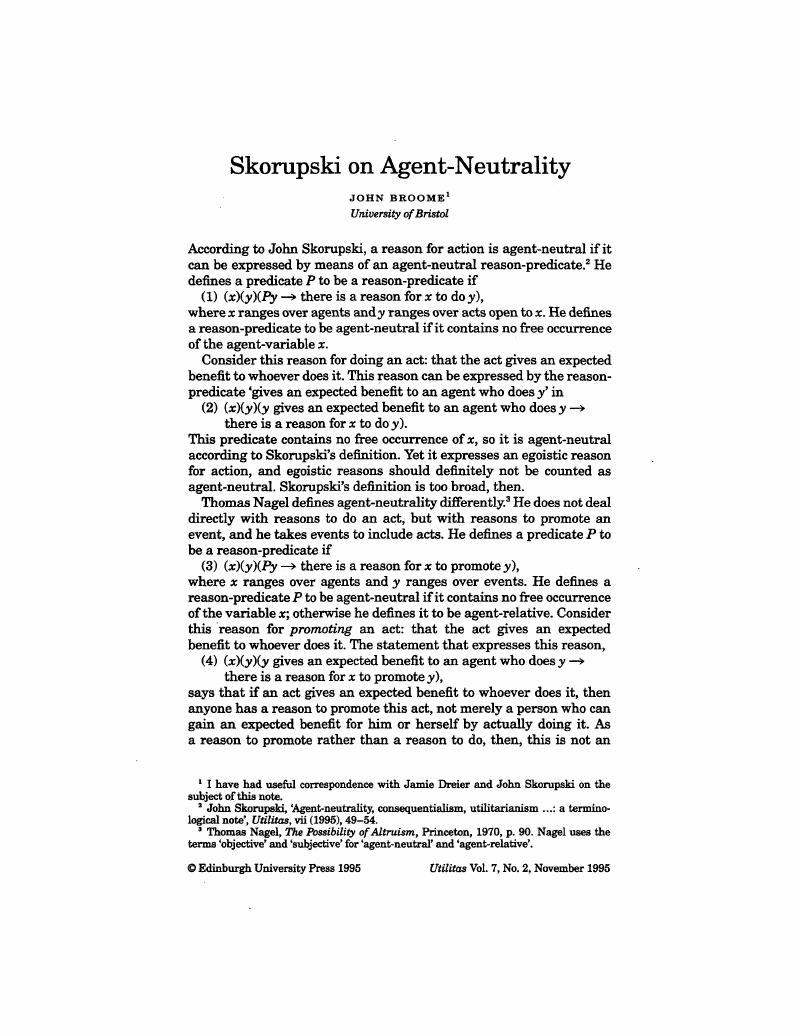Article contents
Skorupski on Agent-Neutrality
Published online by Cambridge University Press: 26 January 2009
Abstract

- Type
- Discussion
- Information
- Copyright
- Copyright © Cambridge University Press 1995
Footnotes
I have had useful correspondence with Jamie Dreier and John Skorupski on the subject of this note.
References
2 Skorupski, John, ‘Agent-neutrality, consequentialism, utilitarianism …: a terminological note’, Utilitas, vii (1995), 49–54.CrossRefGoogle Scholar
3 Nagel, Thomas, The Possibility of Altruism, Princeton, 1970, p. 90Google Scholar. Nagel, uses the terms ‘objective’ and ‘subjective’ for ‘agent-neutral’ and ‘agent-relative’.Google Scholar
4 In ‘Agent-relativity and the doing-happening distinction’, Philosophical Studies, lxiii (1991), pp. 167–85Google Scholar, David McNaughton and Piers Rawling formulate moral rules as injunctions to ensure the truth of a proposition, rather than as injunctions to act. This has the same effect.
5 See Parfit, Derek, Reasons and Persons, Oxford, 1984, p. 104.Google Scholar
- 5
- Cited by




